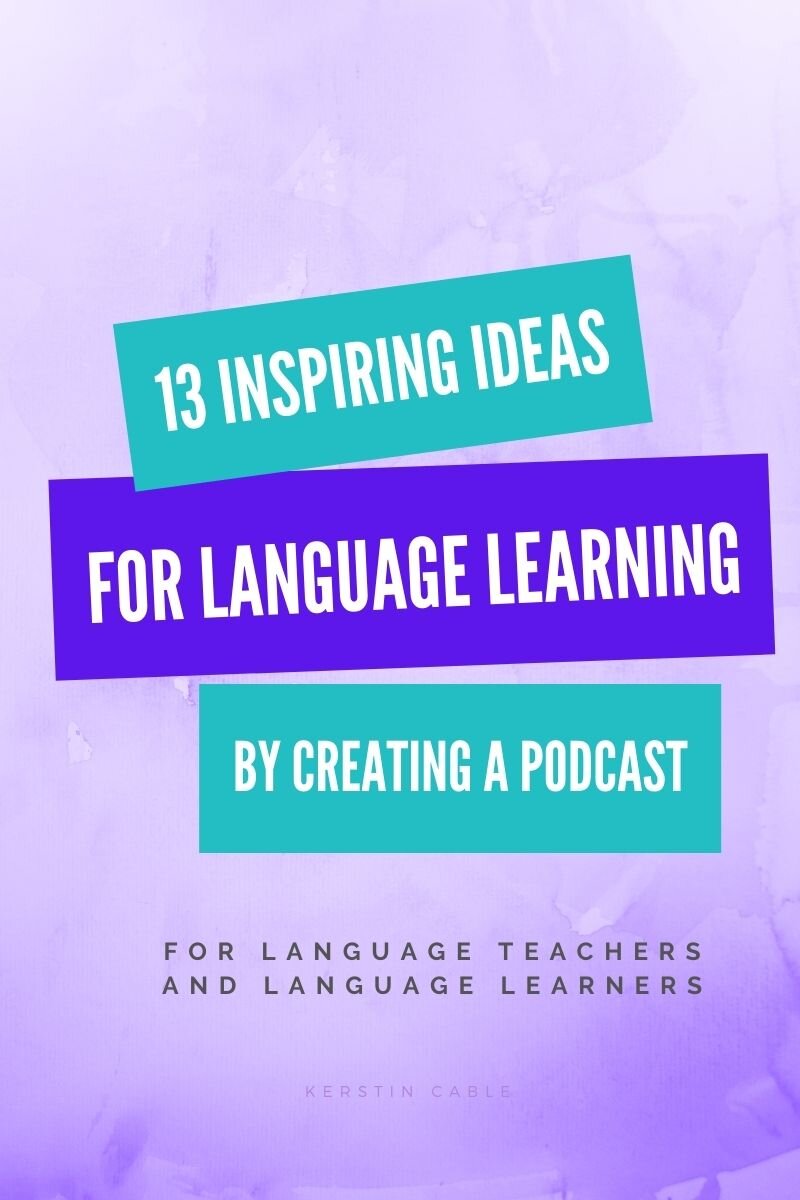I'm a super passionate teacher and love to teach people about what I tried and loved in my life, and one of those passions is podcasting.
For me, starting the Fluent Show was life-changing. I got to interview amazing people and learn something amazing every episode, from neuroscience to language creation.
You can read more about how podcasting made me a better language learner over here.
Most people think of podcasts as a marketing tool for their business but in reality they are so much more!!
Podcasting is perfect for people just like you: language lovers with a passion for learning.
Want some inspiration? Here goes!
If you're learning a language and want to speak more..
you could record a regular podcast in your target language practicing new topics and vocab you've just learnt
you could exchange podcast episodes as a joint show with a learning buddy
you could record interviews with native speakers as practice for your conversation skills
you could record a podcast about the resources you used and review and what you learnt - in your target language, of course
you could bring together friends and start a bilingual podcast book club, or film club, or music club
Or if you're taking regular language lessons...
you could get together with your fellow students and record a study club show together, talking about what you are learning
you could interview your fellow students to learn their motivations and learning methods
you could make your own accountability show, checking in every week to share what you've been learning
Let's get back to talking about business for a minute.
Are you a language teacher looking to get more students for your lessons and programmes?
you could share some of your lessons with the world and build a huge following of eager students
you could interview successful students as super powerful testimonials
you could share your teaching philosophy so the perfect students get to know you
Or maybe you're a teacher with a full roster of students!
you could share homework assignments and tips directly to your students' phones through a simple podcast feed
you could upgrade your content and open a new income stream by going deeper in a podcast discussion
And by the way, if you're a woman or non-binary, we need you even more because right now 75% of podcast hosts are men.
All this leaves just one question:
How do you start a podcast? Who can show you how to do this?
Guess what...I can!!
I'm super excited to announce that starting 20 September, I'm inviting you to join my Podcasting 101 course and get access to a 3-week live round full of support, action and friendly accountability.
Wanna learn more? Ready to do this thing?



![Copy of [Templates] Instagram Grid.png](https://images.squarespace-cdn.com/content/v1/500fab79c4aa83ca4b6cacae/1620665028660-DR82OCH8LL5V8ZW5QYA4/podcast+quote+graphic)